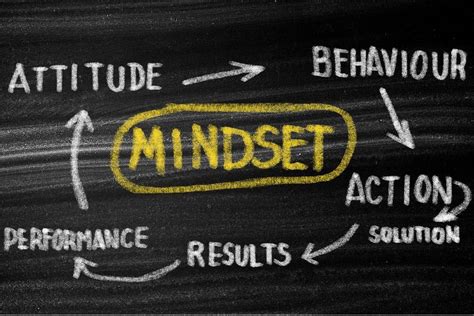Navigating the Dual Challenges: Financial Anxiety and Fitness Stagnation
For many men, the path to personal well-being is often fraught with two pervasive struggles: the silent dread of financial fear and the frustrating stagnation in fitness progress. These aren’t isolated issues; they often stem from similar underlying thought patterns and can feel equally insurmountable. Whether it’s the anxiety of an uncertain financial future or the demoralizing plateau despite consistent effort at the gym, both scenarios can erode confidence and hinder overall life satisfaction.
The conventional approach often involves trying harder, pushing through, or seeking quick fixes. While effort is crucial, without a fundamental shift in perspective, these challenges tend to recur, leading to cycles of temporary gains followed by renewed frustration.

The Pivotal Shift: From Fixed Outcome to Growth Process
The most profound mindset shift that helps men conquer both financial fear and fitness plateaus is moving from a fixed mindset focused solely on outcomes to a growth mindset deeply committed to the process. A fixed mindset sees abilities and circumstances as largely set; failures are personal shortcomings, and effort is futile if results aren’t immediate. This perspective often leads to fear of failure, avoidance of challenges, and a tendency to give up when things get tough.
Conversely, a growth mindset understands that abilities can be developed through dedication and hard work. It views challenges as opportunities for learning and growth, and setbacks as valuable feedback. When applied to finance and fitness, this means shifting focus from the immediate balance sheet or muscle gain to the consistent, disciplined actions that lead to long-term improvement.

Applying the Growth Mindset to Financial Fear
Financial fear often manifests as paralysis, avoidance, or impulsive decisions. With a growth mindset, this transforms into strategic engagement. Instead of fearing the numbers, you learn to understand them. Instead of wishing for a magic bullet, you commit to consistent, incremental steps.
- Education over Evasion: Embrace learning about personal finance, investing, and budgeting. View knowledge as a tool for empowerment, not a source of intimidation.
- Small, Consistent Steps: Break down large financial goals (e.g., saving for a house, retirement) into manageable, actionable steps. Celebrate depositing an extra $50, not just reaching a massive savings goal. The process of consistent saving builds momentum and reduces anxiety.
- Long-Term Vision: Understand that financial freedom is a marathon, not a sprint. Focus on compounding effects and the power of consistent contributions over time, rather than getting discouraged by short-term market fluctuations.

Breaking Through Fitness Plateaus with a Process-Oriented Approach
Fitness plateaus are incredibly frustrating because they challenge the belief that effort always equals reward. A growth mindset here means re-evaluating the process, embracing discomfort, and seeking continuous improvement.
- Re-evaluate and Adapt: Instead of doing the same routine harder, analyze what’s not working. Is it nutrition, recovery, training intensity, or exercise selection? View the plateau as data, not a personal failing.
- Embrace Progressive Overload (in all forms): This isn’t just about lifting heavier. It can mean more reps, better form, shorter rest times, new exercises, or even improving mobility. The process of constantly challenging the body in varied ways is key.
- Consistency Trumps Intensity: While intensity is important, showing up consistently and executing the plan (even when unmotivated) builds the foundation for long-term gains. Celebrate the commitment to the routine, not just the new personal best.
- Seek Expert Guidance: A coach or trainer can provide an objective perspective, identify blind spots, and introduce new strategies, fostering continued growth.

Cultivating Lasting Resilience and Growth
This mindset shift isn’t a one-time event; it’s a continuous practice. Cultivating it requires self-awareness, discipline, and a willingness to step outside comfort zones.
- Practice Self-Reflection: Regularly assess your thoughts and reactions to setbacks. Are you blaming external factors or looking for lessons?
- Set Process-Oriented Goals: Instead of “lose 20 lbs” or “make $10,000,” focus on goals like “exercise 3 times a week” or “save 10% of every paycheck.” The outcomes will follow the consistent process.
- Embrace Failure as Feedback: Every missed workout or budget shortfall is an opportunity to learn and adjust, not a reason to quit.
By shifting focus from the daunting outcome to the empowering process, men can transform financial fear into strategic action and fitness plateaus into stepping stones for new levels of strength and vitality. This growth-oriented perspective doesn’t just conquer challenges; it builds a foundation for lifelong resilience and continuous improvement across all facets of life.





